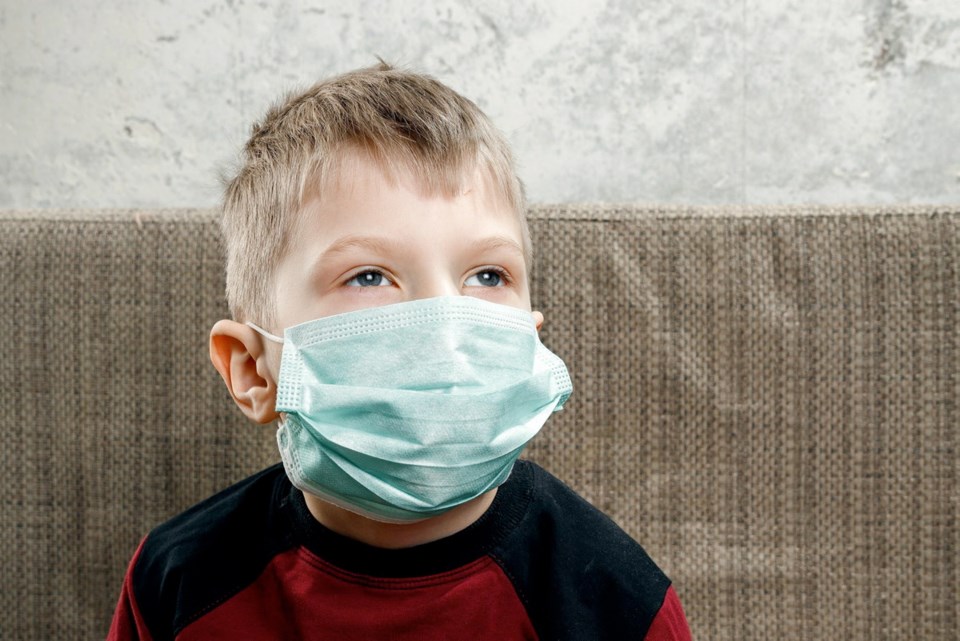It seems like only yesterday that B.C.’s half a million school-age children woke up knowing that their day was predictable and safe. The day would bring the trip to school, either walking with friends or on a noisily ebullient bus ride followed by playground socializing before the first bell rang.
At school, they’d go to a familiar classroom where they’d meet with a familiar teacher who, despite the everyday ups and downs of the demands of learning, they could trust to be there for them.
After school there would be the trip home, maybe community sports or playdates before dinner, homework, TV and, reluctantly, sleep.
Only yesterday that was a routine that, with some variations, could be depended upon to form the foundation and framework of daily life.
But now that’s all gone.
Gone for how long? Nobody knows, but suddenly daily predictability has been replaced by physical isolation from friends and from normal activities.
The daily news, once a matter of only peripheral interest in children’s lives, now warns that somewhere out there is lurking and indefinable but potentially lethal menace which has killed more than 1,500 people in Canada.
But kids are resilient, probably more so than the adults around them, resilient at least until they become aware of a COVID-19 illness or possibly the death of someone even in the far outer circle of their social awareness.
Kids worry and that worry is exacerbated by the reality of forced confinement, the overheard murmured concerns about family financial stability, the inexplicable gaping hole where their lives used to be.
Parents, who at one time could rely upon their child’s daily routine to provide predictability and stability for their children, now find themselves watching carefully for changes in sleep patterns, appetite, energy levels and general well-being.
In the mid- to long term as the physical isolations from the familiar world extend, some children or adolescents might become more withdrawn or even more psychologically isolated.
Kids, with only a tenuous grasp of what is happening might worry not just about their own health but also about a future to which they really never gave much thought.
This may all seem like a bleak, overstated analysis of the effects on kids of the new COVID-19 demands on their lives but, with no or little possibility of a return to what was once “normality,” parents need to be on the watch for signs of deterioration of the joy most kids find in everyday life.
Pediatric experts tell us that firstly, although it has never been necessary before, kids need to be reassured about their own physical and emotional safety and that there is no threat to their access to food, the comforts of home, the affection of the significant adults in their lives — even health care.
Providing accurate information in age-appropriate language, limiting exposure to media coverage and creating or re-establishing a familiar structure and predictable routines become more important than ever before.
Today’s kids are more media-savvy than any previous generation, but a steady TV diet of exponentially increasing occurrences of COVID-19 illness and even deaths could undermine the stability of even the most self-assured child.
According to Kathryn Kinmond, a psychotherapist and a member of the British Association for Counselling and Psychotherapy, uncertainty is a key driver of this kind of anxiety. “Coronavirus gives rise to lots of uncertainty,” says Kinmond, while other mental-health experts such as David Crepaz-Keay of the British Mental Health Association warn of the upsurge in his clients, adults and children, who have become prone to panic attacks, which, he explains, is borne out of “excessive worrying for unsubstantiated reasons.”
Jennifer Rodemeyer, manager of the Child Life Program at the Mayo Clinic, suggests that since kids are hearing about this virus daily, it is important to take the time to sit down with children to define what COVID-19 actually is, starting the conversation by asking children: “What do you think coronavirus or COVID-19 is?” thus providing an understanding of what your children actually know, think they know or are interpreting the information they are receiving from a variety of sources about the illness.
Finally, and as every educational expert on the planet will confirm, kids learn and process most effectively through watching what adults actually do despite what they might say.
Adults engaging in conscientious social distancing, hand-washing and simply finding useful things to do while isolated at home all go a long way towards alleviating childish fear that things will never be the same.
Those same experts also emphasize the importance of play in kids lives: board games, music, art projects and even cooking together may require the gradual introduction of new daily routines the goal of which is to keep everybody, kids and adults, sane during crazy times.
Geoff Johnson is a former superintendent of schools.



